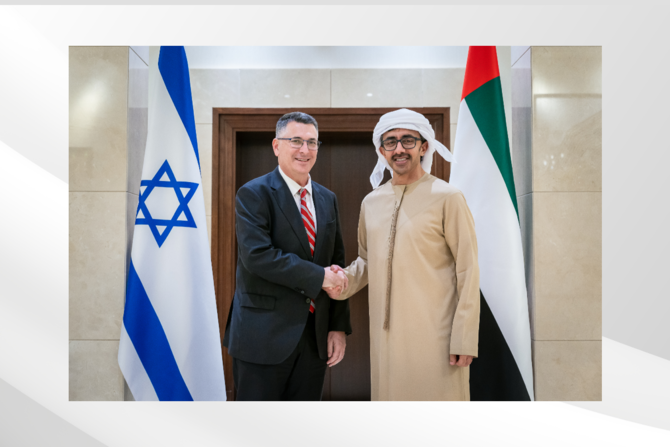DUBAI: UAE Foreign Affairs Minister Sheikh Abdullah bin Zayed held a phone call with his Israeli counterpart during which an agreement was reached to allow the delivery of “urgent humanitarian aid” to the besieged Gaza Strip.
Médecins Sans Frontières (MSF) said on Wednesday that the amount of aid Israel was allowing through was inadequate and merely a “smokescreen to pretend the siege was over.”
UAE Sheikh Abdullah bin Zayed held his phone call with Israeli Minister of Foreign Affairs Gideon Sa’ar which led to an agreement to allow the delivery of urgent humanitarian aid from the United Arab Emirates, the country’s state news agency WAM reported on Wednesday.
“The aid will address the food needs of approximately 15,000 civilians in the Gaza Strip in the initial phase,” it added.
The initiative will also provide “essential supplies to support the operation of bakeries, as well as critical items for infant care, while ensuring a continuous supply to meet the ongoing needs of civilians.”
Israel has come under international pressure to allow aid into Gaza, where humanitarian agencies say a total blockade imposed on March 2 has sparked critical food and medicine shortages.
Israel said 93 aid trucks had entered Gaza from Israel on Tuesday, but the United Nations said the aid had been held up.
Israeli Prime Minister Benjamin Netanyahu said this week it was necessary for Israel to prevent famine in Gaza for “practical and diplomatic reasons”, after his government announced it would allow limited aid in.
But MSF said on Wednesday that the amount of aid Israel had started allowing into the Gaza Strip was not nearly enough and was “a smokescreen to pretend the siege is over.”
“The Israeli authorities’ decision to allow a ridiculously inadequate amount of aid into Gaza after months of an air-tight siege signals their intention to avoid the accusation of starving people in Gaza, while in fact keeping them barely surviving,” said Pascale Coissard, MSF emergency coordinator in Gaza’s Khan Younis.
Pope Leo XIV also called on Wednesday for sufficient humanitarian aid to be allowed into Gaza.
“The situation in the Gaza Strip is worrying and painful. I renew my heartfelt appeal to allow the entry of sufficient humanitarian aid and to put an end to the hostilities, the heartbreaking price of which is paid by children, the elderly, the sick,” the pope said during his first weekly general audience.
Palestinian president Mahmud Abbas on Wednesday hailed international rejection of Israel’s “blockade” and “starvation” of Gaza, after the European Union ordered a review of its cooperation deal with Israel.
“We reiterate our welcome for the joint statement issued by the leaders of Britain, France, and Canada, as well as for the positions of the European Union countries, the joint statement of the donor countries and the statement of the Arab-Islamic Ministerial Committee on this matter,” Abbas said in a statement. “They all rejected the policies of blockade, starvation, displacement and land seizure.”
(With input from AFP)

























